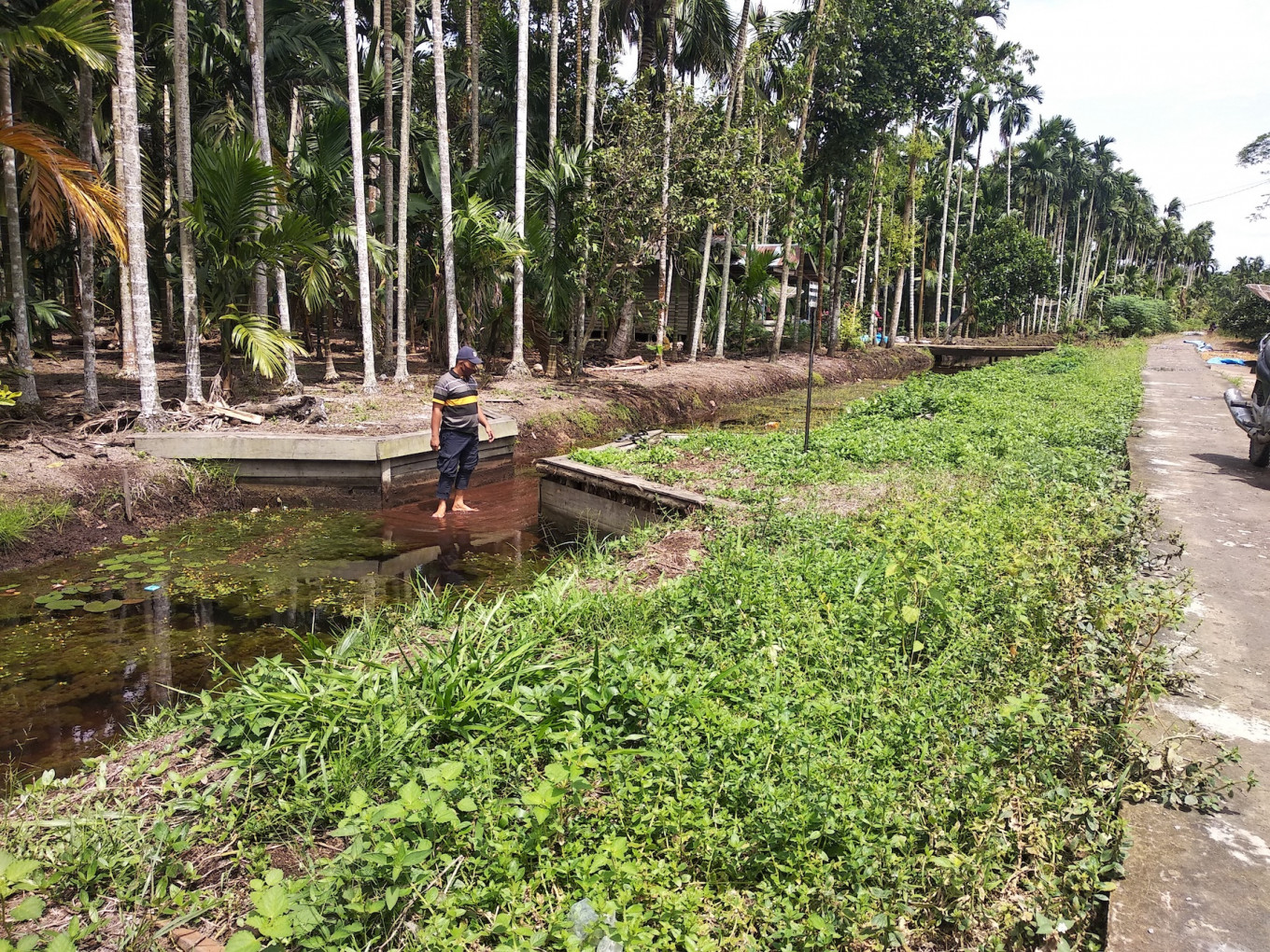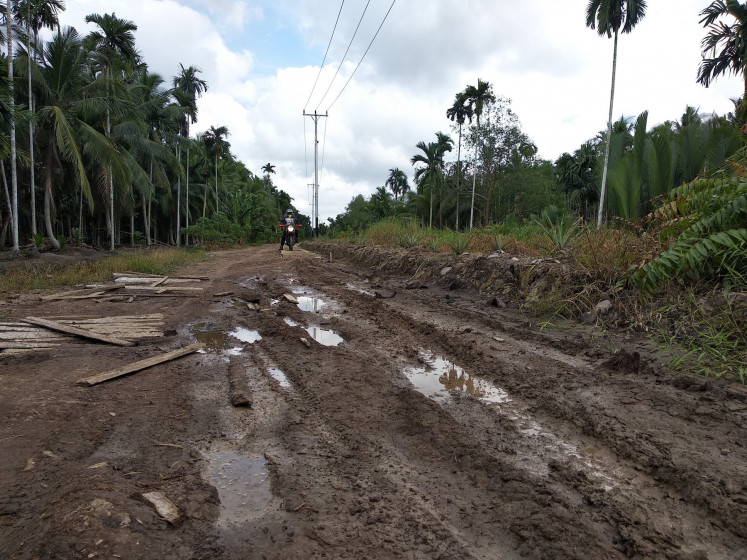Popular Reads
Top Results
Can't find what you're looking for?
View all search resultsPopular Reads
Top Results
Can't find what you're looking for?
View all search resultsJambi villages 'safe' this year from peatland fires. But villagers still worry about future disasters.
A combination of natural and human intervention has helped keep two villages in Jambi safe from peatland fires this year, but villagers are still worried that they will not be enough to fight potential fires, especially with funds being diverted to the COVID-19 emergency.
Change text size
Gift Premium Articles
to Anyone
T
he residents of two villages in Jambi who have suffered recurring fire disasters have welcomed La Niña’s arrival to the province, which has brought additional rainfall from October to December.
Ibnu Sulistyono, the head of the Meteorological, Climatology and Geophysics Agency (BMKG) in Jambi, said that the villages of Merbau and Teluk Kulbi “were safe from forest fires” this year.
The weather phenomenon is good news for the two villages, which have had to reallocate this year’s fire management funds to COVID-19 mitigation efforts and also need more equipment to rewet local peatlands.
Nur, a resident of Merbau village in Jambi’s Tanjung Jabung Timur regency, expressed her worry over the current condition. The villages lacked funding to prevent forest fires, lacked fire safety and prevention equipment, and some of the peatland restoration facilities needed repairing.
She still remembered the peatfires five years ago, when the nighttime sky blazed red and haze obscured the sun during the day. “I couldn’t breathe, my chest hurt and my eyes watered all the time,” Nur recalled.
The 2015 fire in Merbau village engulfed about 900 hectares of land, of which only about 10 hectares belonged to the villagers. The rest were oil palm concessions and natural forests.
Data from the Peatland Restoration Agency (BRG) show that 4,432 ha of the 5,575 ha village area, or 79.5 percent, was peatland. Separate government data show that 60 percent of the peatland in Merbau had dried out following the 2015 disaster, making the village vulnerable to subsequent fires.
The condition of the Merbau peatlands improved after the BRG built a firebreak canal system in 2018, but the residents still believe that they are not adequately prepared for any potential fire disasters.
The peatland restoration and conservation program of Kemitraan, a national NGO, has encouraged Merbau village this year to enact the Village Regulation on Protection and Management of Peatland Ecosystem.
In accordance with the regulation, Merbau village allocated Rp 236 million (US$16,600) to this year's emergency fund for tackling forest fires, but then had to reallocate most of it to the COVID-19 public health emergency. This left just Rp 5 million in its fire emergency fund.
Merbau village head Amiruddin said the village administration still had Rp 30 million in an emergency reserve fund. But he was worried that the village would need to disburse additional funds for the COVID-19 emergency, which would cut into the fire disaster fund.
The village of Teluk Kulbi, located in Betara district of nearby Tanjung Jabung Barat regency, has also had to cut its fire disaster budget so it could disburse cash aid to residents.
Teluk Kulbi village head Yuswaji said that the budget reallocation meant that forest fires took lower priority than the health crisis.
The village set up a fire management team two years ago with assistance from the Kemitraan program. The team has 21 fire monitors who patrol the village at least once every two days.
“We have [a fire engine] with a 200-meter-long hose for extinguishing fires,” said Dwi Indra Surya. But he added that the team did not yet have a complete set of firefighting equipment, including fireproof boots. So the team sometimes had to fight forest fires in sandals.
The trauma experienced during the 2015 and 2019 forest fires lingers among the villagers, who continue to feel uneasy despite the improvements since then. The BRG built 19 canal dams in Merbau village that improved the peat moisture content to 70 percent. But residents were still worried, especially because four-wheeled vehicles could not reach the village.
Teluk Kulbi village also built a firebreak canal system, but only 15 of the 31 canal dams the BRG built two years ago were still functioning.
BRG data showed that during the 2015 fire disaster, Jambi province recorded 1,056 hot spots over 64,410 ha, located mostly in the regencies of Tanjung Jabung Barat, Tanjung Jabung Timur and Muaro Jambi. Data on the 2019 fire from the Jambi branch of the Indonesian Forum for the Environment (Walhi) showed that the disaster had affected 165,186 ha of land in the province, including 114,900 ha of peatlands.
Bachyuni, the head of the National Disaster Mitigation Agency (BNPB) in Jambi, said that 258 villages in the province were classified as vulnerable to fire disasters from 2015 to 2019, all located in four of the province’s 11 regencies and municipalities: Muarojambi, Batanghari, Tanjung Jabung Barat and Tanjung Jabung Timur.
The article is funded with Independent Journalists Alliance (AJI) Jakarta program.











